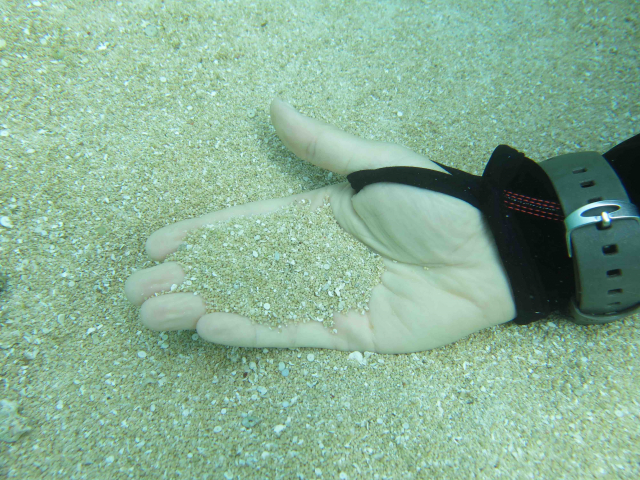06/10/2020 | Dr. Steve Doo from the US was recently awarded a sought-after fellowship for postdoctoral researchers from the Alexander von Humboldt Foundation (AvH) to spend two years at the Leibniz Centre for Tropical Marine Research (ZMT) starting in June 2021. He will study the impacts that climate change will have on coral reef beach sediment production. Steve Doo, a marine ecophysiologist by training, is a member of the working group Geoecology and Carbonate Sedimentology led by Professor Hildegard Westphal.
There has been a documented loss of beaches on tropical coasts worldwide due to climate change, causing increasing concerns for local communities dependent on tourism. Little attention has been paid to the relationship between coral reefs and the dynamics of sandy beaches. Beaches on coral reefs are often formed when calcium carbonate from the skeletons of calcifying organisms in the reef is broken down and deposited as sand. These calcifying organisms include not only corals, but also foraminifera – small single-cell marine organisms often a millimeter in size.

Dr. Steve Doo | Photo: Jan Meier
In his research Steve Doo will focus on comparatively large representatives of such unicellular organisms, known as large benthic foraminifera (LBF for large benthic foraminifera), which reach several millimetres in diameter. Like corals, LBFs also produce calcium carbonate skeletons. “When LBFs die, the calcareous skeleton remains and is transported by the water to different locations, including beaches In some regions, the skeletal remains of LBFs can contribute more than 95% of carbonate beach sediments,” explains Doo.
While there is some understanding of both production and deposition of sediments, to date, there is a limited understanding of the dynamics that link these two processes. There is an even further limited understanding of how these processes will be impacted by rising atmospheric CO2 . concentration. Using LBFs as model organisms, Doo wants to understand how production and deposition processes of the skeletons of calcifying organisms influence beach dynamics and how climate change will alter them. In the aquaria of ZMT’s Marine Experimental Ecology (MAREE) Steve plans to carry out experiments under current and predicted future CO2 conditions in order to determine the growth rates of LBFs.
These lab results will then be expanded to include data from the field, estimating carbonate production rates of LBFs on coral reefs in general.
Steve Doo earned his doctorate from the University of Sydney, Australia. He was a Postdoctoral Researcher at California State University, Northridge. During his PhD and postdoctoral fellowships, he has undertaken research in the US, Australia, French Polynesia, Taiwan, and Japan. He received a ‘Humboldt Research Fellowship for Postdoctoral Researchers’ to undertake long-term research stays in Germany. Through the programme the Alexander von Humboldt Foundation sponsors researchers with above-average qualifications from across the globe. Fellows also benefit from individual support from the Humboldt Foundation and its diverse sponsorship portfolio.





